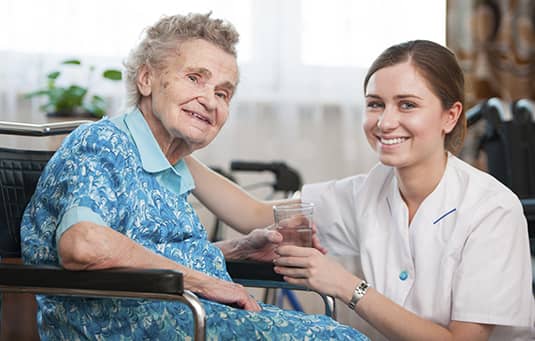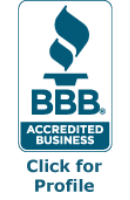Illinois Nursing Home Regulations
 Public Health on a quarterly basis. You can see an example of these reports
Public Health on a quarterly basis. You can see an example of these reports
Illinois nursing homes are regulated, licensed, inspected and certified by state and federal agencies. For instance, the Illinois Department of Public Health (IDPH) ensures that nursing homes are in compliance with the mandatory state regulations. This state agency works in cooperation with the U.S. Department of Health and Human Services for Medicare and Medicaid Services (CMS).
Every year, there are 1,300 full on-site inspections, and there are approximately 6,000 complaints each year regarding deficiencies in nursing homes, according to the IDPH.
The following is a summary of what state and federal laws require of nursing homes in order to protect residents from harm.
Federal Regulations in Illinois

Federal law requires that nursing homes that participate in Medicare or Medicaid be in compliance with certain rules and regulations. Under the Nursing Home Reform Act, nursing home administrators must ensure that the facilities do the following:
- Provide services and activities to attain or maintain the highest practicable physical, mental and psychosocial well-being of each resident in accordance with a written plan of care
- Have sufficient nursing staff
- Conduct a comprehensive, accurate assessment of each resident
- Prevent any deterioration of the ability to bathe, dress, groom, ambulate, use the toilet, eat and communicate
- Provide good nutrition, grooming and hygiene for those who cannot perform these duties for themselves
- Ensure that there is correct medical treatment and medical devices to maintain vision and hearing
- Ensure patients do not develop bedsores (pressure sores) and provide services to promote healing
- Ensure there is adequate supervision to prevent injuries
- Maintain fluid intake so residents do not suffer dehydration
- Maintain the dignity and respect of each resident.
State Regulations for Nursing Homes in Illinois

The Illinois Nursing Home Care Act is a state statute that outlines the mandatory requirements for nursing homes. These mandatory requirements include:
- Ensuring that no resident is deprived of any rights, benefits or privileges that are guaranteed by state law or under the U.S. Constitution due to living in a nursing home
- Informing all new residents and spouses upon being admitted of their spousal impoverishment rights under the Illinois Public Aid Code and the Medicare Catastrophic Coverage Act
- Permitting residents to manage their own financial affairs unless under guardianship
- Allowing residents to use or wear personal property unless medically inappropriate
- Providing residents with adequate storage for personal property and a secure area to store smaller valuable items as long as the resident maintains access to these items
- Allowing residents to retain the services of their personal physicians (at their own expense or through health insurance)
- Refraining from performing any research or treatment that is experimental or allowing access to residents’ medical records for studies without prior written approval.
- Ensuring that all medical treatments are under the supervision and orders of a physician
- Giving each resident the right to refuse medical treatment
- Respecting each resident’s right to privacy regarding his or her personal care or medical care
- Refraining from the use of physical or chemical restraints for punishment or convenience of the staff at the facility (any use of restraints must be ordered by a physician who documents the need)
- Never giving residents any unnecessary drugs and respecting the resident’s right to be informed about the medications administered (all drugs must be prescribed by a physician)
- Never abusing a resident
- Never neglecting a resident
- Respecting the resident’s right to unimpeded communication by mail, phone or visit
- Ensuring protection of the resident’s funds
- Screening all residents and ensuring there is an individual plan in place for each resident of the home.
Types of Nursing Home Violations in Illinois
There are several types of nursing home violations. They fall into the following categories:

- Type AA – This is an incident that has nearly caused or has caused the death of a resident due to a violation of the Illinois Nursing Home Care Act
- Type A – An incident that could lead or has led to physical harm and a substantial probability of death, mental or physical harm
- Type B – An incident that would likely cause mental or physical harm to a resident
- Type C – A less serious incident that would not cause immediate physical or mental harm but could lead to the probability of such harm occurring.
There are 829 Illinois nursing homes, all of which can be investigated for violations by the Illinois Department of Public Health. It is important that you find out all you can about violations in the past before placing your loved one in any nursing home.
Violations are listed by the Illinois Department of Public Health on a quarterly basis. You can see an example of these reports here. If you review these reports, you can gain an understanding of the extent of the problems in nursing homes.
Unfortunately, violations of state and federal regulations are far too common, with a high percentage of nursing homes cited each quarter. Fortunately, licensing can be conditionally withdrawn for certain facilities, and fines can be imposed for serious violations.
Contact an Illinois Nursing Home Abuse and Neglect Attorney

Your loved one could be at serious risk of harm if placed in the wrong facility. If your relative has been injured, developed a medical condition such as bedsores, has been neglected with regard to hygiene or personal care or suffered any other form of abuse or neglect in Chicago or elsewhere in Illinois, connect with a nursing home abuse lawyer from Salvi, Schostok & Pritchard P.C. for assistance. Simply call or contact us online without delay.
Sources / More Information:
- Nursing Home Guide
- Illinois Nursing Homes, CareGiverList.com
- Who Regulates Nursing Homes? Illinois Department of Public Health
- The 1987 Nursing Home Reform Act, AARP
- Requirements for (and Assuring Quality of Care in) Skilled Nursing Facilities, 42 U.S. Code § 1395i–3, Legal Information Institute







